It’s not being called the “year from hell” for nothing. The pandemic, the kind of “grey swan” event that is predicted but never pinpointed in time, finally came calling in 2020, aggravated by deepening political division and tribalism. International institutions continued to fragment, with the United States withdrawing from the World Health Organization right in the middle of the plague and engaging in obstructionist behavior in other multilateral organizations.
Yet there were rays of light even in the abyss. Democracy prevailed in the US presidential election, even as the US political system remains polarized and dysfunctional. In a surge of spectacular innovation, aided by artificial intelligence and big data, scientists created COVID-19 vaccines with stunning alacrity.
It’s tempting to say that in 2021, there’s nowhere to go but up. But there will be further unanticipated shocks and no shortage of risks. Drawing on years of foresight experience at the US National Intelligence Council, we’ve assessed the knowable and drawn on our best judgment to identify the top ten risks in the new year for the United States in particular, but with global implications. We’ve attached a probability to each potential scenario, with “medium” denoting a 50/50 chance that it will occur in the coming year. The ordering of the risks is by importance for the United States and the rest of the world.
And in the spirit of optimism for the new decade—hope springs eternal, after all—we’ve made an addition this year: ten opportunities in the coming year for the new US administration, beginning with the most important and using the same probability scale for each potential scenario.
Top risks

The COVID-19 crisis deepens amid a slow vaccine rollout
COVID-19 will continue spiking in the United States, the European Union (EU), and Russia, with the consequences from holiday travel, gatherings of family and friends, and widespread pandemic fatigue likely extending into 2021. Many could further let their guards down in anticipation of receiving vaccines. Vaccine distribution could encounter unexpected production and logistical problems, pushing back the timeline for when the bulk of the public can be vaccinated. In the United States in particular, polls show that 42 percent of Americans won’t take any vaccines, which could lower the chances of stopping the contagion until well into the second half of 2021. International travel restrictions will remain in place for much of 2021 since distribution of the vaccine overseas, particularly in developing nations, will likely be spotty. The virus also continues to spread and mutate, potentially limiting vaccine effectiveness.
Probability:


The Biden presidency is stifled
Joe Biden’s ability to govern will be constrained, especially if Republicans retain Senate leadership. In his last days, President Donald Trump is making it as difficult as possible for his successor: Treasury Secretary Steven Mnuchin has returned $455 billion in recovery funds to the government, while Trump threatens China with additional arms sales to Taiwan, warns Iran of additional sanctions, and withdraws the United States from the Open Skies Treaty in a further dismantling of arms-control measures. Polls show some 70 percent of Republicans believe the election was stolen from Trump and that the Biden presidency is illegitimate. Trump could be a thorn in Biden’s side for the next four years, particularly if he announces another run for the presidency. Meanwhile, progressives will pressure Biden from the left, draining support for his administration among moderates.
Probability:


Another global financial crisis, driven by debt, breaks out
Global debt from emergency COVID-19 spending, especially in developing economies, is exploding. Total debt increased by $15 trillion in 2020 and is expected to reach 365 percent of global GDP by the end of the year. The International Monetary Fund (IMF) has had to disburse pandemic-driven financial aid to eighty-one countries already, and capital flows to low-income countries are projected to drop by $700 billion from 2019 levels in 2020. Developing economies need $7 trillion to repay debt by the end of 2021. Zambia is the sixth nation to default in 2020. Such financial distress could spark yet another global financial crisis. In an effort to stem the growing crisis, the Group of 20 (G20) has created a “Common Framework” (including China) to manage debt relief, but US congressional reluctance to approve any new resources for the IMF could undermine G20 efforts.
Probability:


Western countries struggle with a slow economic recovery
The International Monetary Fund (IMF) and Organization for Economic Co-operation and Development (OECD) recently reduced their original estimates for 2020 of downside economic damage to the United States and other countries from COVID, but most of the world won’t get back to pre-2020 GDP even by the end of 2021. Only one major economy—China—will experience significant growth (almost 2 percent) in 2020, ending up 10 percent larger by the end of 2021. The situation could become worse for the West if there’s inadequate fiscal stimulus. Many economists believe the slow US recovery from the 2008 financial crisis was partly due to the premature withdrawal of stimulus and an emphasis on deficit-reduction starting in 2010. In Europe, post-2008 austerity measures exacerbated the problem of slow growth. Keep in mind as well that the 2008 financial crisis spawned the ongoing populist surge in the United States and Europe. Once again, the darkening financial prospects of millions of citizens, pushed down just when they started to get back on their feet, could lead to even worse longer-term political repercussions.
Probability:

Once again, the darkening financial prospects of millions of citizens, pushed down just when they started to get back on their feet, could lead to even worse longer-term political repercussions.

North Korea manufactures a crisis
When it comes to addressing the nuclear threat from North Korea, Biden will inherit the failed diplomatic legacies of the last four presidents. Despite Trump’s three meetings with Kim Jong-un, North Korea now boasts an even more capable nuclear-weapons arsenal, including some twenty to thirty bombs and intercontinental ballistic missiles that may soon be able to reach the US mainland. The pattern in the past has been for new American presidents to be greeted with a North Korean provocation in the form of either a missile or nuclear test. Expect one in the first quarter of Biden’s presidency. Such a demonstration will lead to pressure on Biden in the media and in Congress to do something, raising tensions and likely leading to a pseudo-crisis that could spin out of control. Kim is not suicidal; US deterrence still works with him, though it needs to be strengthened in the face of new and emerging North Korean capabilities. The Biden administration will be most effective in this regard if it avoids saber-rattling and instead pursues multilateral opprobrium and works with South Korea and Japan to enhance deterrence.
Probability:

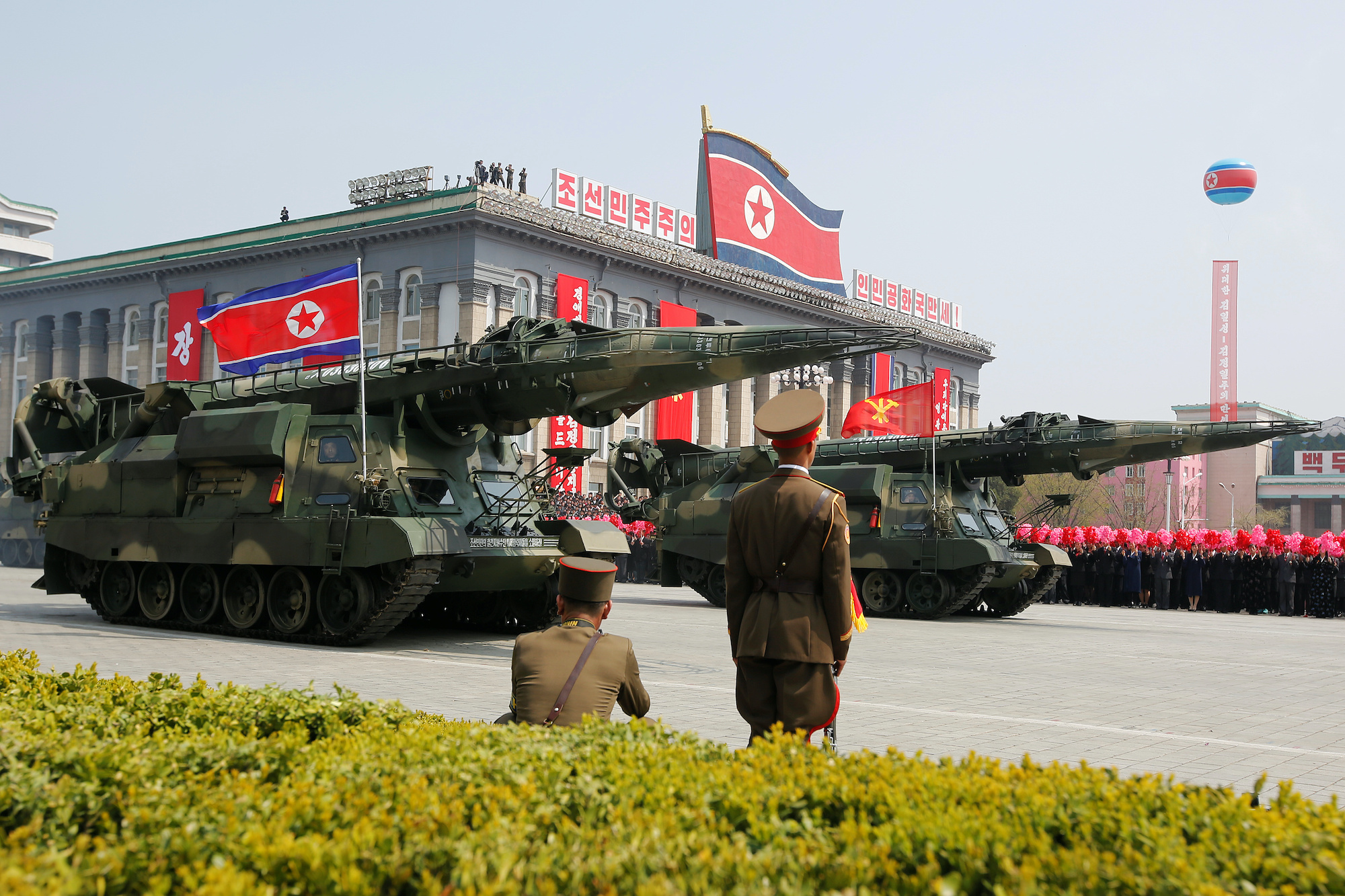
Source: Reuters

The confrontation between the US and Iran intensifies
Israel’s suspected assassination of Iran’s top nuclear scientist plus Trump’s possible heaping-on of sanctions before leaving office could poison the well with Iran, thwarting Biden’s hope of rejuvenating the nuclear deal. In Iran, there is widespread anger at the United States and Europe, and a debate over next steps ahead of presidential elections scheduled for June. Should Supreme Leader Ayatollah Khamenei follow through on his vow to retaliate—against Israel, the United Arab Emirates, or Saudi oil facilities—before January 20, it could trigger a strong reaction from the Trump administration, such as bombing the Natanz nuclear facility. This could, in turn, spark an escalatory cycle between Washington and Tehran, undermining Biden’s diplomatic aspirations. A US return to the nuclear deal is based on an Iranian reversion to the status quo ante plus a willingness to expand the old agreement. A “more-for more” negotiation to extend timelines on halting Iranian nuclear activities, freezing missile development, and halting missile sales, along with a winding down of the war in Yemen, in exchange for easing UN sanctions against Iran, could begin to rebuild a modicum of trust among the parties to the nuclear deal. But that scenario is far from a certainty.
Probability:

Israel’s suspected assassination of Iran’s top nuclear scientist plus Trump’s possible heaping-on of sanctions before leaving office could poison the well with Iran, thwarting Biden’s hope of rejuvenating the nuclear deal.

The US and China clash over Taiwan
Taiwan may be where tensions in the US-China relationship reach a denouement. A negative dynamic has escalated over the past year or so: Each move by the United States to show support for Taiwan—such as arms sales, high-level official visits, and military exercises—has led China to ratchet up pressure on Taiwan with near-daily air and sea intrusions. Taiwan is an existential issue for the Chinese Communist Party. If the US-China confrontation worsens, Xi Jinping may feel compelled to move toward unification of Taiwan with mainland China. This will not necessarily mean a Chinese military invasion, though inadvertent clashes are a risk. More likely is a Sun Tzu-type, frog-in-boiling-water strategy of squeezing Taiwan’s economy, putting the onus on the United States to escalate. Any US military intervention would trigger an outright conflict between the world’s two superpowers.
Probability:


The worst food crisis in decades ravages the world
The United Nations (UN) has warned that the world is on the brink of its worst food crisis in at least fifty years. The pandemic has disrupted global food supply chains. And with more people falling into extreme poverty as a result of the economic damage inflicted by COVID-19, rising food prices could not come at a worse time. The UN forecasts that more people will die of COVID-related malnutrition and its associated diseases than from the coronavirus. That doesn’t take into account the toll for those who survive; childhood malnutrition has lifelong health and mental repercussions. The World Food Program believes that Yemen, South Sudan, Nigeria, and Burkina Faso may already be suffering famine conditions. Afghanistan, Cameroon, the Central African Republic, Congo, Ethiopia, Haiti, Lebanon, Mali, Mozambique, Niger, Sierra Leone, Somalia, Sudan, Syria, Venezuela, and Zimbabwe are not far away from it. Even in advanced economies, the poor are suffering from higher food prices at a time of high unemployment. In the United States, more than one in five households are now food insecure.
Probability:


The expansion of the global middle class comes to an end
Perhaps the world’s top achievement of the last three decades was the rise of millions out of extreme poverty and the growth of a global middle class. This may be jeopardized unless there is a strong recovery from the COVID crisis in 2021 and beyond. Experts believe that for the first time in half a century, the middle class has started to shrink—potentially by 52 million people in Latin America alone. At the same time, the World Bank predicts that by the end of 2021 up to 150 million additional people will fall into extreme poverty, defined as those living on less than $1.90 a day. Lower than expected economic growth next year would increase that figure. Historically, the erosion of the middle class correlates with political instability, democratic backsliding, and greater conflict.
Probability:

Perhaps the world’s top achievement of the last three decades was the rise of millions out of extreme poverty and the growth of a global middle class. This may be jeopardized unless there is a strong recovery from the COVID crisis in 2021 and beyond.

Neo-Ottoman Turkey goes more rogue
Increasingly authoritarian, Islamist, and expansionist, Turkey under Recep Tayyip Erdogan has either intervened militarily or has placed troops in Somalia, Qatar, Libya, Iraq, Syria, and the Balkans. Ankara has been confronting Russia in Syria, Libya, and Azerbaijan while attacking US-allied Kurds that are fighting ISIS. Turkey is deploying the Russian S-400 air-defense system, which poses a threat to NATO and has prompted US sanctions. And it has conducted naval provocations in the Eastern Mediterranean, contravening the Law of the Sea Treaty and threatening Cyprus. Many Arab states see Turkey as a threat, while Erdogan is also provoking France over its handling of recent terror attacks. Ankara’s multi-front military assertiveness could spark more conflict and force a reckoning within NATO, which counts Turkey as a member.
Probability:

Top opportunities

The World Trade Organization experiences a rebirth
The World Trade Organization (WTO) faces an uncertain future with global trade rules and systems for settling disputes at risk. Absent strong institutional leadership and a new consensus driven by US-EU cooperation, the WTO could unravel, fragmenting global trade, fostering more protectionism, and leaving trade largely governed by differing regional arrangements and the power and size of respective economies. Amid a protracted COVID-19 pandemic, that would contribute to slower economic growth, if not recession. Rejuvenating global rules-based trade would be an important achievement, but it will require three steps to be taken in 2021: choosing a new WTO director-general; picking judges for the organization’s dispute-settlement mechanism, which has ceased to function as Trump has refused to appoint new judges; and framing both moves in the context of major institutional reform supported by a coalition of allies (the US, EU, Japan, Australia, New Zealand, and South Korea). Like-minded partners could reach consensus on common positions and push back against China’s predatory industrial policies.
Probability:


Multilateralism gets updated for the 21st century
Biden promised in his campaign to revive America’s multilateralist policies. An easy first move would be for Biden to rejoin all the international agencies and agreements that Trump withdrew from, including the World Health Organization, UN Human Rights Council, and Paris climate accord. But there’s also an opportunity for renewing US leadership in a reformed UN system. To begin with, the US absence in the global body under Trump left a vacuum that China has been filling. Even more importantly, however, a reinvigorated US presence that mobilizes Europe and other pro-multilateralist members could update the United Nations for the twenty-first century. When it comes to addressing governance deficits in space, autonomous weaponry, and new forms of dual-use biotechnology and geoengineering, there are few international agreements setting standards and regulations. Instead of waiting until the inevitable catastrophe happens in these domains, the Biden administration could get ahead of coming crises by helping create conditions where emerging technologies can be a force for universal good.
Probability:


The US and Russia pursue a relationship built on mutual interests
VladimirPutin is in bad shape, with COVID-19 afflicting Russia and the country’s “near abroad” in turmoil: Alyaksandr Lukashenka under siege in Belarus, a pro-EU president in charge in Moldova, and the Nagorno-Karabakh conflict forcing the deployment of permanent Russian peace-keeping troops. At home, $40-$50 oil is undermining the Russian economy. As a result, Putin may be seeking a more stable relationship with the United States and Europe. Rebuilding that relationship could include establishing an architecture of mutual restraint—starting with the negotiated extension of the New START nuclear arms-reduction treaty, involving an agreement on missiles and a nuclear-stability framework that brings in China. It could also include some progress toward a peace deal in Ukraine. Relations could stabilize into a cool, business-like relationship that provides Moscow with some options beyond dependence on China.
Probability:


The new Sunni Arab-Israeli alignment expands and deepens
The recent flurry of agreements to normalize ties between Israel and many Sunni Arab states may be the only low-hanging fruit that Trump has bestowed on Biden. The Saudis appear to have postponed an opening to Israel after a US-brokered, not-so-secret meeting between Crown Prince Mohammed bin Salman and Israeli Prime Minister Benjamin Netanyahu. Saudi Arabia likely sees such an opening as a card to play in resetting ties with the next US administration, knowing Biden’s critical perspective on Saudi human-rights violations and the war in Yemen. The next step for Washington would be to facilitate a regional free-trade agreement and investment treaty among Sunni states and Israel. Biden may have to guard against Saudi pressure for harsher US measures against Iran, including not rejoining the Iran nuclear agreement.
Probability:


The United States leads an expanded Trans-Pacific Partnership
The Bush and Obama administrations launched the Trans-Pacific Partnership (TPP) as a pillar of US strategy toward the Asia-Pacific, in order to shape 21st-century rules of trade in the world’s most dynamic economic region. The logic was that by creating an accord with high standards for labor, environmental, and e-commerce rules among 40 percent of the world’s economy, the United States and its partners could compel China to eventually abide by those rules. Instead, Trump withdrew from the TPP, making the United States the outlier. Japan went ahead with the other eleven members and launched a scaled-down version of the accord, which Tokyo structured to facilitate a US re-entry. Meanwhile a second Asia-Pacific accord—the Regional Comprehensive Economic Partnership (RCEP), which includes China and has narrower standards—was finalized in November. Rejoining the TPP would be an important way for the United States to recapture the regional economic space it has vacated, restore US credibility, and bolster American leadership on economic rulemaking. Biden has expressed interest in returning to the TPP but has also voiced concerns about elements of it. If he were to push for rejoining the agreement, he would need to make the case for doing so to his own party as well as to Republicans who may not want to see him succeed. Any political reservations notwithstanding, having a seat at the negotiating table again would allow the United States to press for a review of the accord.
Probability:

Rejoining the TPP would be an important way for the United States to recapture the regional economic space it has vacated, restore US credibility, and bolster American leadership on economic rule-making.

The US and its allies build new international structures for digital governance
Data and algorithms are the drivers of the 21st-century economy. Yet the internet is beginning to fragment into three digital regimes—led by the European Union, the United States, and China, amid a trend toward “internet sovereignty.” Avoiding the balkanization of the Internet will be a key challenge for the Biden administration. The good news is that the US is well-positioned to lead efforts to forge global standards for the free flow of data and a 5G infrastructure to enhance it. The Trans-Pacific Partnership included the first effort to generate global standards for unhampered e-commerce. These rules were further strengthened in the US-Mexico-Canada Agreement (USMCA) and the US-Japan digital trade accord of September 2019. Biden could build a coalition of the US, EU, Japan, Australia, and others to encourage the WTO to embrace free cross-border flows of data with no duties and no data-localization rules for e-commerce, since current talks on digital standard have stalemated. In addition, the US should spearhead efforts by the public and private sectors to develop and scale up Open Radio Access Networks (O-RAN), a software-based approach to 5G that is inter-operable with all hardware and could leapfrog offerings from China’s Huawei. There are two international private-sector coalitions working on O-RAN with Japan and the European Union, and the private sector could accelerate commercial deployment of the technology.
Probability:


Artificial intelligence breeds new forms of cooperation, not just competition
Based on the set of ethics and principles on artificial intelligence (AI) independently adopted by China, the United States, the European Union, and others, there’s consensus on the need for common standards and norms, including: being technically safe; showing accountability and transparency in assessing failure; ensuring privacy and good data governance; and working in service to society and the environment. The challenge is to operationalize and codify such standards. Big Tech has already done so for some apps using technologies such as facial recognition. All governments have an interest in avoiding potential catastrophes. So shouldn’t governments take the next step and establish a universally agreed-upon baseline on the harms versus the benefits coming from the AI revolution? Such a measure could provide direction for international and national institutions developing regulations to minimize negative impacts while maximizing potential benefits. As AI leaders, the United States and China should begin a dialogue on these matters. The US should also consult with key allies on bringing an agenda to the Group of 20 and the UN that includes a global AI Commission to set and enforce standards and monitor AI usage.
Probability:


A “Manhattan Project” emerges for battery-storage breakthroughs
The biggest single impediment to accelerating the transition to a post-petroleum economy is energy storage. Better, cheaper batteries could bring down costs and increase capacity, making electric cars less expensive and more appealing. Solar and wind energy only work when the sun is shining and there is wind, so energy storage is key to scaling up fast-growing renewable sources. More capable, cost-effective batteries—not arbitrary “we’ll be carbon-free by X date” aspirations—are essential to meeting climate goals with green energy. Biden should bring together the private sector, Congress and governors, national labs, and academia to form, under the leadership of the White House and the Department of Energy, a public-private National Commission with ample funding to accelerate a breakthrough in energy storage.
Probability


A universal coronavirus vaccine is developed
The COVID-19 pandemic has brought focus to the persistent threat of ever-mutating viruses. The rapidity of vaccine development is the product of artificial intelligence, big data, and accumulated research, all of which have allowed bioscience to move with unprecedented speed to combat new viruses. It will be difficult, but within our grasp, to create a global public good: a universal vaccine to prepare for the next pandemic. The United States should take the lead—building on work by the World Health Organization and US National Institutes of Health, and on international cooperation to address the novel coronavirus—in assembling a consortium of the willing and able that pools research-and-development efforts to create a universal coronavirus vaccine.
Probability

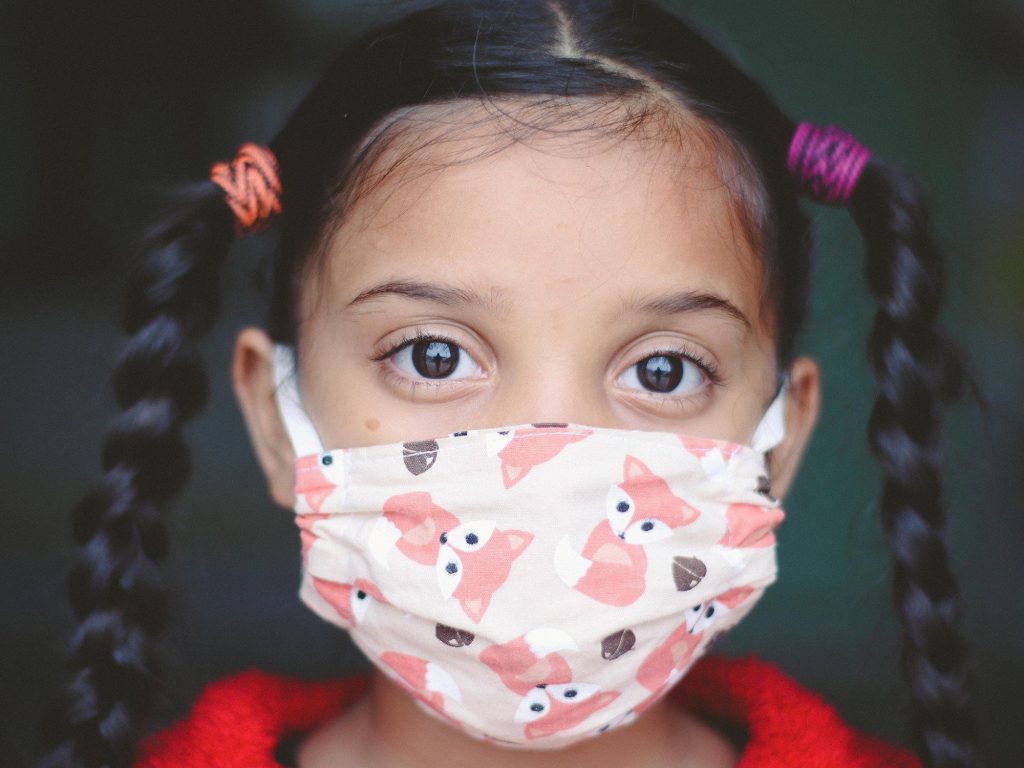

Transatlantic ties are renewed to cooperate on technology and counter China
The EU Commission is already formulating ideas for a “tech alliance” and greater cooperation with the United States against China, though EU member states will have the last word on what this looks like. There’s a growing belief in Europe that the region must establish “strategic autonomy,” and many Eastern and Central European members of the EU want stronger economic ties with China, if they don’t already depend on China as a prime export market. Brussels is interested in widening cooperation where possible with Beijing and in engagement with Moscow, even if there are limited immediate gains. The EU is also still intent on “taxing” US tech giants, if not finding ways to trim their market dominance, and remains wedded to its General Data Protection Regulation guaranteeing consumer privacy. Nevertheless, Biden has an early opportunity to rebuild transatlantic relations to better coordinate tech and China policy, so long as his administration doesn’t alienate EU allies by calling on them to join a new cold war against China and Russia. The US-EU tech alliance, if it happens, will require concessions from both sides.
Probability:

Featured experts
The original article can be found @AtlanticCouncil


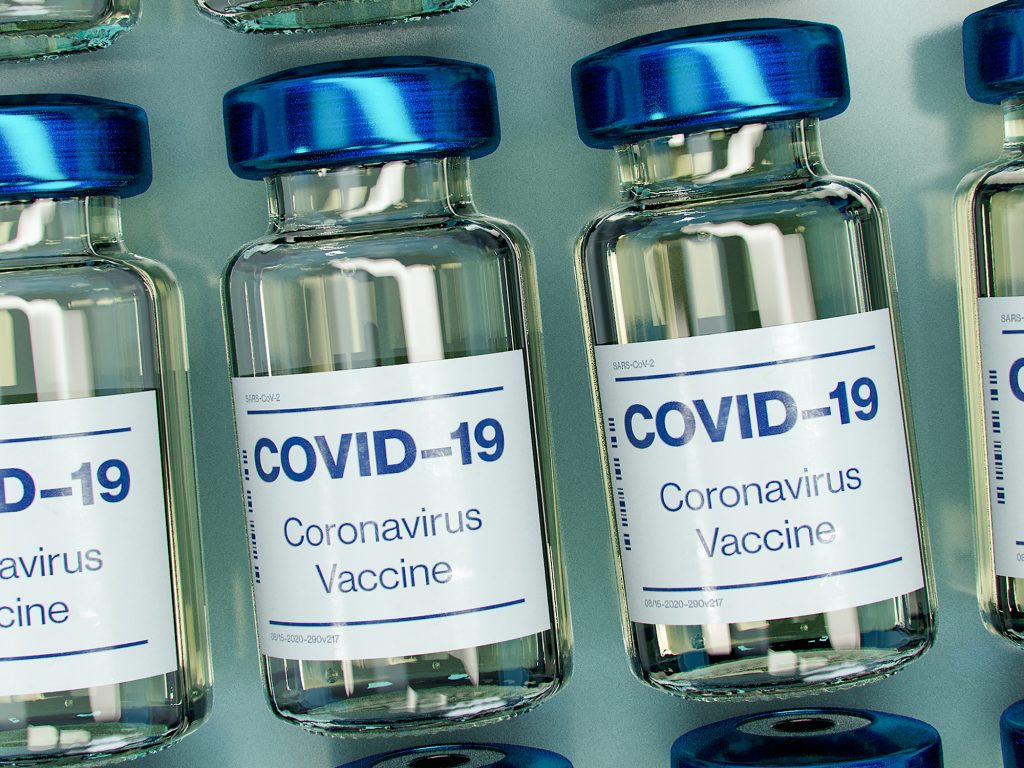

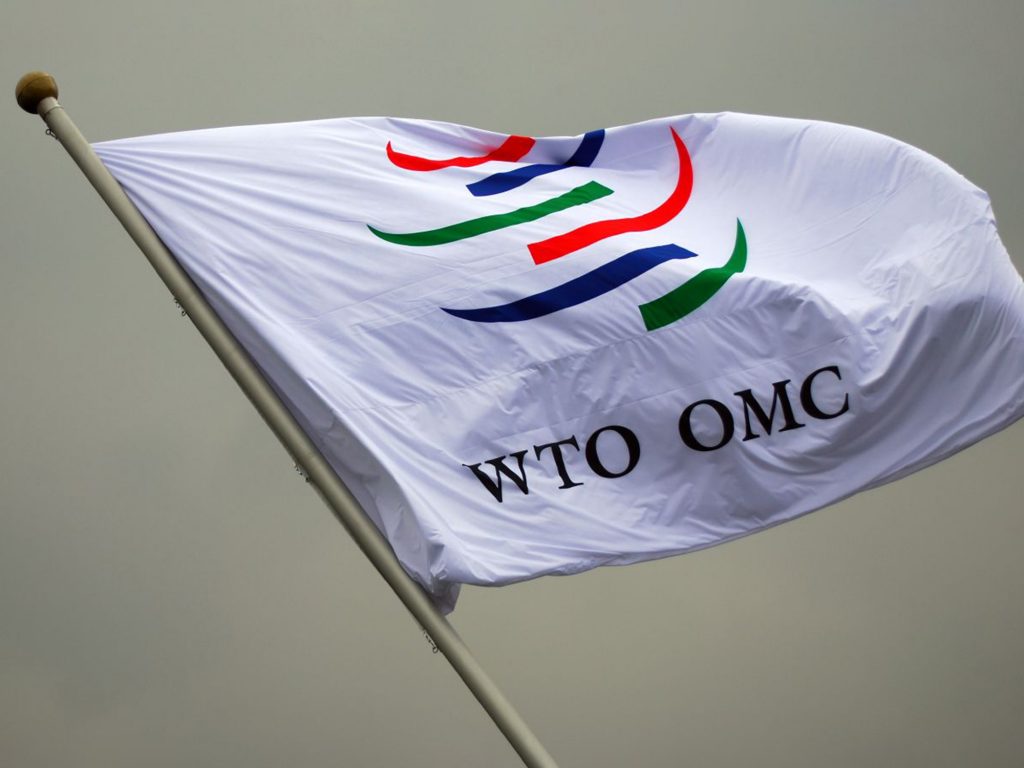
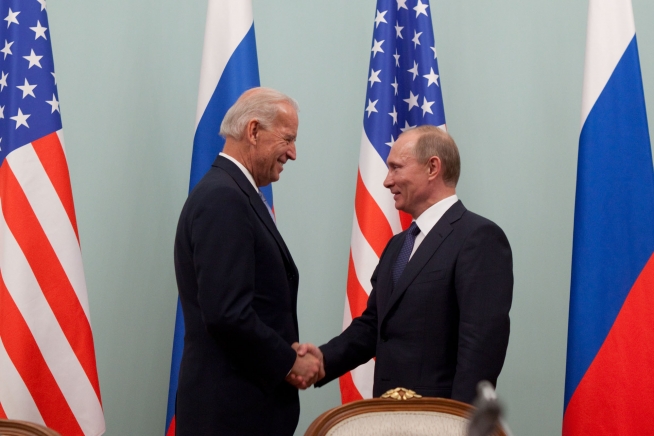
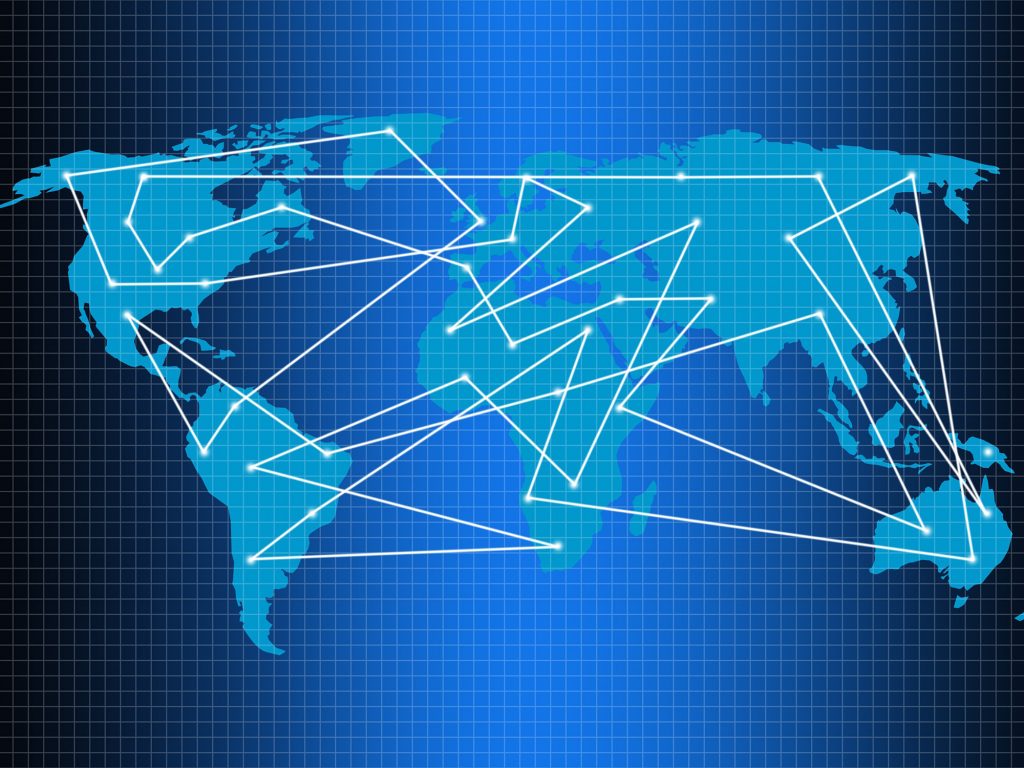



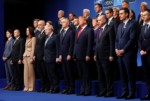


Leave a Reply